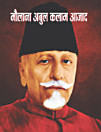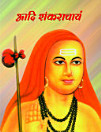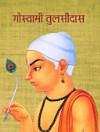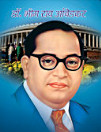Maharshi Arvind: Maharishi Arvind Ghosh: Kishor, Kaushal's Portrait of a Visionary
About this ebook
अपने पिता की इच्छा-पूर्ति करते हुए उन्होंने भारतीय सिविल सर्विस (ICS) की परीक्षा दी और अच्छे अंकों से उत्तीर्ण हुए; लेकिन घुड़सवारी की परीक्षा में असफल हो जाने के कारण उन्हें भारत सरकार की सेवा का अवसर नहीं मिला।
वर्ष 1908 से वे भारतीय स्वतंत्रता संग्राम में बढ़-चढ़कर हिस्सा लेने लगे। उन्होंने अंग्रेजी दैनिक ‘वंदे मातरम्’ का संपादन किया और अपने बेबाक आलेखों से देश को जाग्रत् करने का कार्य किया। उन्होंने ब्रिटिश सामान; ब्रिटिश न्यायालय और अन्य वस्तुओं का खुलेआम बहिष्कार किया।
अलीपुर बम केस उनके जीवन का एक निर्णायक मोड़ साबित हुआ। उन्हें एक साल के लिए अलीपुर जेल में डाल दिया गया। वहाँ उन्होंने भगवद्गीता का गहन अध्ययन किया और अपने भावी आध्यात्मिक जीवन की नींव रखी।
श्रीअरविंद ने मानव जाति की सहायता के लिए विश्व-प्रसिद्ध आश्रम की स्थापना की।
एक कवि; विद्वान्; योगी; बहुमुखी प्रतिभा के धनी अरविंद सदैव मनुष्यमात्र के जीवन-उत्थान में लगे रहे।
प्रस्तुत है आध्यात्मिक क्षेत्र में भारत का मस्तक ऊँचा करनेवाले; उच्च कोटि के दार्शनिक; स्वतंत्रता-सेनानी और एक सच्चे योगी की अनुकरणीय-प्रेरणास्पद जीवनी।
"Maharishi Arvind Ghosh" by Kishor, Kaushal: Authored by Kaushal Kishor, this book is likely a biographical work that explores the life and teachings of Maharishi Arvind Ghosh, a renowned Indian philosopher, yogi, and spiritual leader.
Key Aspects of the Book "Maharishi Arvind Ghosh":
Biographical Exploration: Kaushal Kishor may offer readers an in-depth exploration of the life, philosophy, and spiritual journey of Maharishi Arvind Ghosh.
Spiritual Insights: The book likely delves into the spiritual teachings and contributions of Maharishi Arvind Ghosh, providing readers with valuable insights into his philosophy.
Legacy and Influence: "Maharishi Arvind Ghosh" may examine the enduring legacy of the spiritual leader and his impact on Indian and global spiritual thought.
Kaushal Kishor is probably an author committed to documenting the life and spiritual wisdom of Maharishi Arvind Ghosh.






